1. The WHO defines health systems as comprised of six 'building blocks'
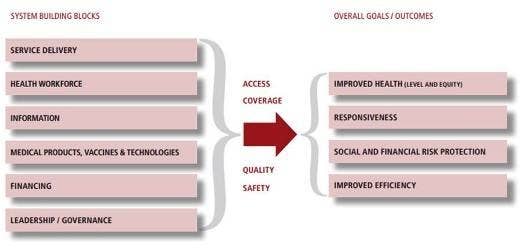
2. But the 'building blocks' approach has its critics
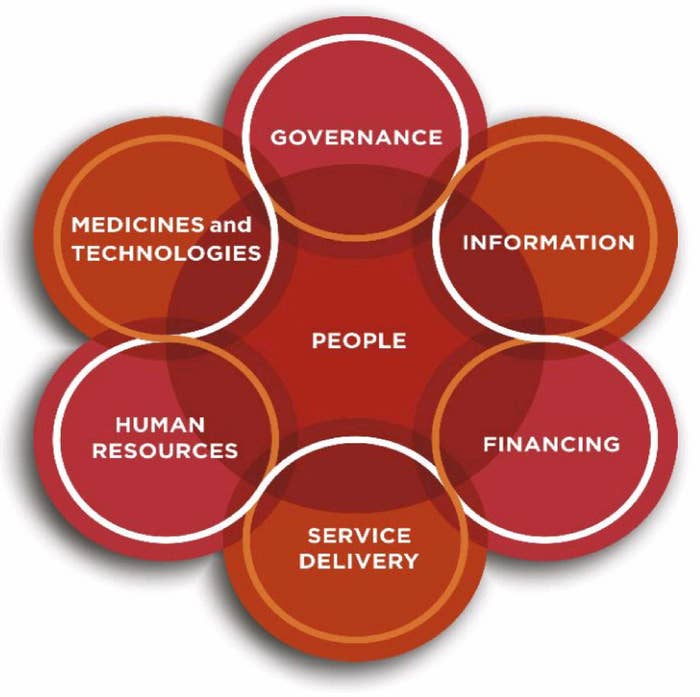
3. Systems thinking? What's that?!
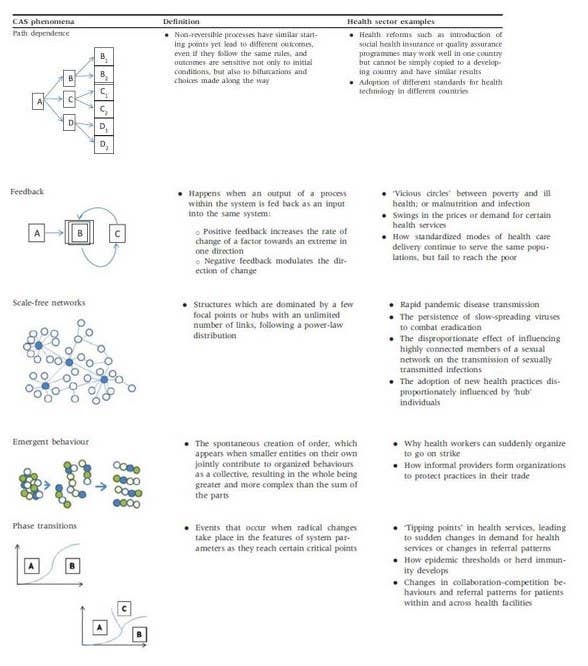

4. Right, so now we know what health systems are -- but why are they important?
View this video on YouTube
Didn't watch the video? Let me recap -- the video explains what all is involved in vaccinating children. First, we need the science to determine whether a vaccine is effective at solving a particular problem. We've got lots of this type of science in health, we know what sorts of technologies seem to work.
But having an effective technology isn't enough if it can't get to the people who need it, or if they can't afford it, or if it's broken along the way -- that's where health systems (and health systems strengthening) come in. As the video explains there is vaccine production in a variety of countries. These vaccines need to be purchased and then distributed to the countries where they are needed. Once they arrive in country, there need to be further distribution mechanisms -- often while kept in cold storage. Let's say that they arrive at a local clinic, in addition to keeping cold they then have to be administered by a trained health care provider of some sort.
Overall something as 'simple' as administering a vaccine is actually rather complicated, and effective health systems are necessary to ensure each step.
5. What are some common problems with health systems?
There are a number of potential problems that a health system might face.
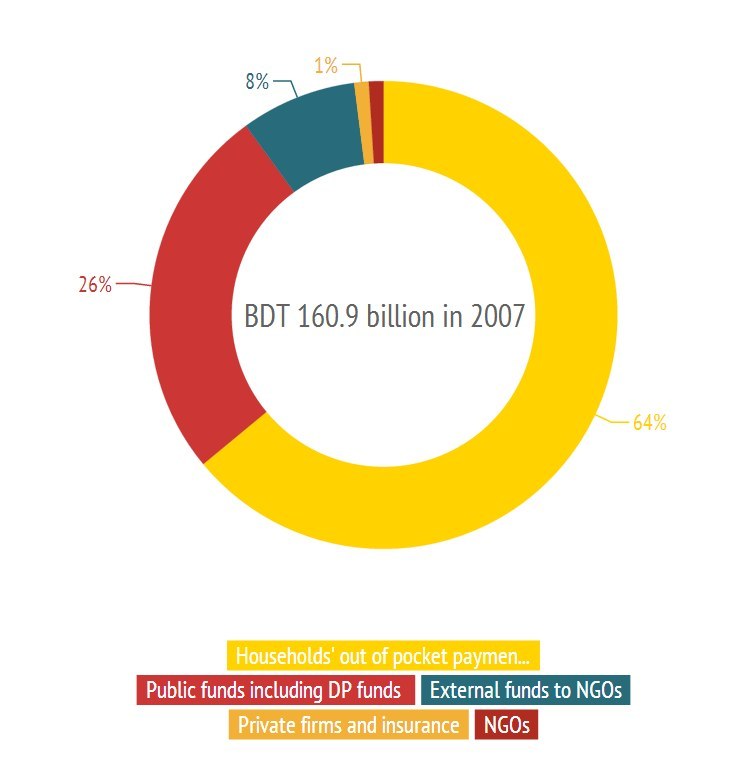

6. Ok, how is DFID approaching health systems strengthening then?
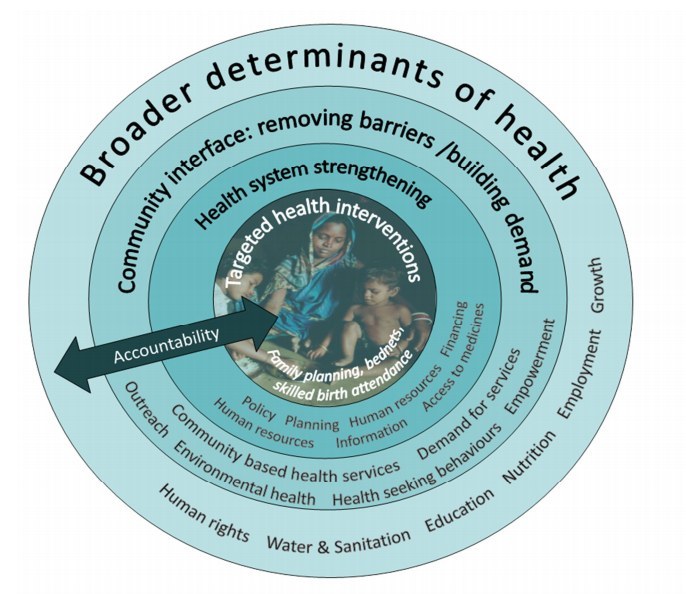
[DFID] Aims to maximise health gains through targeted, cost-effective health interventions that are delivered through strengthened, more efficient and effective health systems (including both public and private providers) and that engage communities in the promotion and protection of their own health. It incorporates work on the broader determinants of health, for example: improved access to water and sanitation and improved hygiene behaviour; increased girls' education; women's leadership and political participation; strengthened political systems; and greater resilience to the impacts of climate change, natural disasters and conflict.
7. Is DFID's approach working?
In today's oral evidence in front of the International Development Committee, there seemed to be a consensus that many of the things DFID was doing to support health systems development were appropriate.
Simon Wright from Action for Global Health went as far as suggesting that DFID has been a champion of health systems strengthening but needs to do more at the international level to improve policy and encourage other donors to support this approach.
However, there was some criticism that a 'results focus' had prioritised simple and quick interventions -- like distributing bednets -- at the expense of actual health systems strengthening.
Prof Kara Hanson from the London School of Hygiene and Tropical Medicine and Research Director of the RESYST Consortium also suggested that, while DFID has the desire to base its decision making on the evidence, in practice this doesn't happen as often as it should. Of course that's not unique to health systems strengthening, as the recent ICAI review of how DFID learns pointed out.
Experts at the inquiry also noted that health systems strengthening actually goes well beyond health. There are many areas of government that effect health -- for example sanitation, trade and agriculture -- and DFID should support other governments to adopt a joined up approach to governance of the health system which brings in these sectors.


